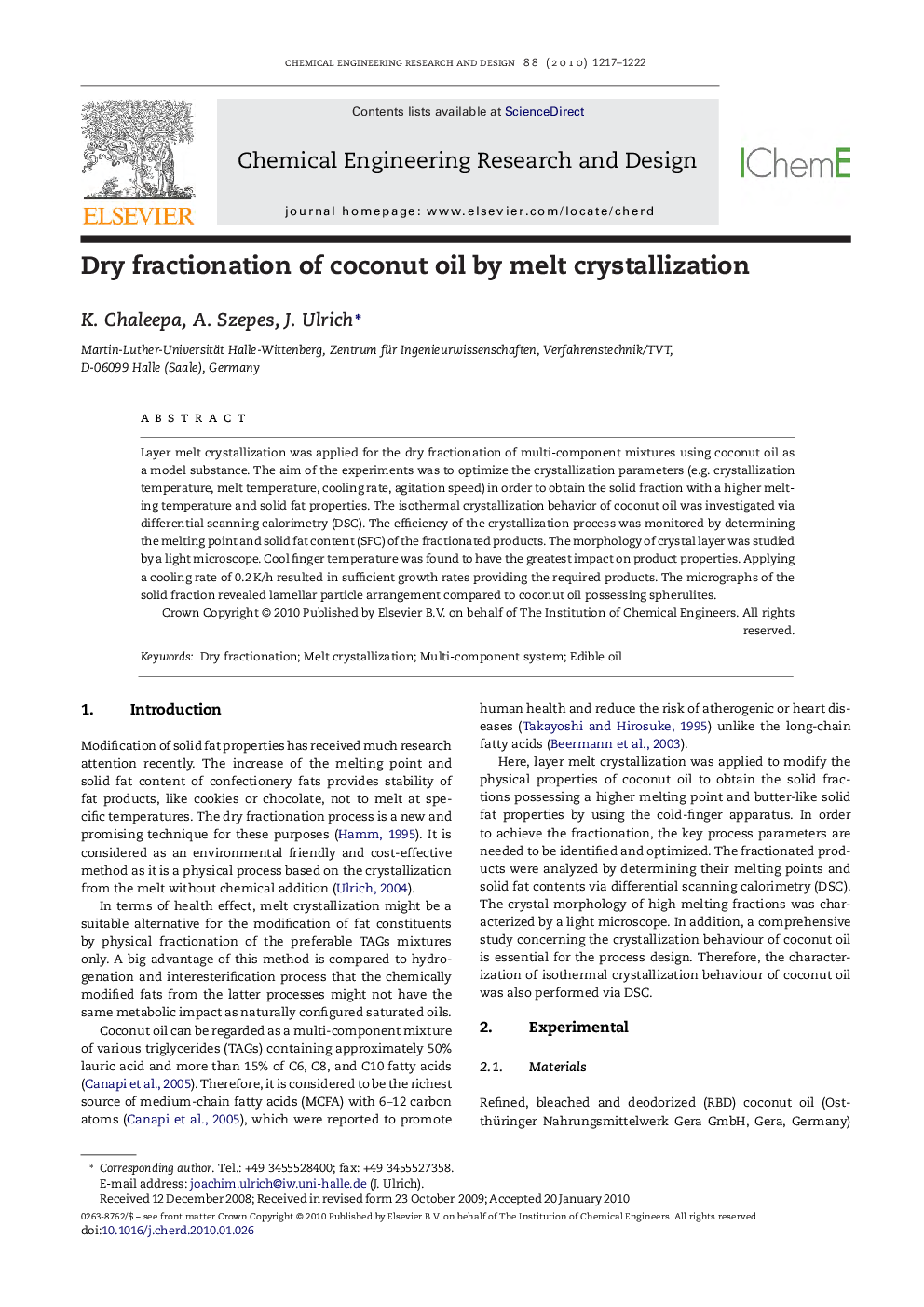| Article ID | Journal | Published Year | Pages | File Type |
|---|---|---|---|---|
| 621294 | Chemical Engineering Research and Design | 2010 | 6 Pages |
Layer melt crystallization was applied for the dry fractionation of multi-component mixtures using coconut oil as a model substance. The aim of the experiments was to optimize the crystallization parameters (e.g. crystallization temperature, melt temperature, cooling rate, agitation speed) in order to obtain the solid fraction with a higher melting temperature and solid fat properties. The isothermal crystallization behavior of coconut oil was investigated via differential scanning calorimetry (DSC). The efficiency of the crystallization process was monitored by determining the melting point and solid fat content (SFC) of the fractionated products. The morphology of crystal layer was studied by a light microscope. Cool finger temperature was found to have the greatest impact on product properties. Applying a cooling rate of 0.2 K/h resulted in sufficient growth rates providing the required products. The micrographs of the solid fraction revealed lamellar particle arrangement compared to coconut oil possessing spherulites.
